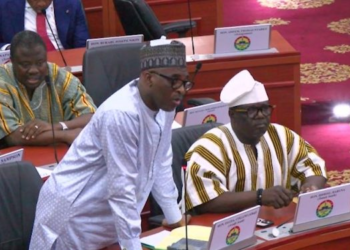The Government of Ghana has directed Gold Fields Limited to halt all operations at the Damang Mine by April 18, 2025, following the rejection of an application by its subsidiary, Abosso Goldfields Limited, to renew its 30-year mining lease.
This move, announced in a statement released by Gold Fields Ghana Limited, marks a pivotal shift in Ghana’s mining landscape. The mining lease, initially granted on April 18, 1995, will officially expire after three decades of gold extraction in the rich Damang concession, located in the Western Region.
“The application to the Minerals Commission to extend the mining lease for the Damang Mine has been declined,” the statement confirmed, ending speculation about the future of the mine that has been central to the country’s gold production narrative.
A Strategic Recalibration
The government’s decision comes at a time when it is increasingly focused on restructuring the nation’s natural resource management and maximizing long-term economic benefits. With Gold Fields being the world’s seventh-largest gold producer, and Ghana’s two Gold Fields-run mines accounting for 32% of the group’s global gold output in 2024, the cessation of Damang’s operations is both symbolic and significant.
The government holds a 10% stake in both Damang and Tarkwa Mines, underscoring national interest in the assets. However, according to Gold Fields’ 2024 Annual Report, no mineral reserves were declared at Damang, and mining operations effectively ceased in 2023, with the site processing only stockpiles in 2024.
A Historic Site Reaches a Crossroads
The Abosso concession, steeped in mining history, originally operated from 1882 to 1956. In the late 1980s and early ’90s, Ranger Exploration revived interest in the site through feasibility studies, leading to the discovery of significant mineralization and ultimately the construction of the modern Damang Mine in 1997.
In 2001, Gold Fields Limited, along with Repadre Capital Corp, acquired a 90% stake in the mine from Ranger. After subsequent mergers and share buyouts, Gold Fields became the majority owner, with Ghana retaining 10%.
Despite the mine’s storied past and its early promise—where Damang alone once contributed up to 40% of Gold Fields’ group output—its recent years have seen decline. The 2023 Integrated Annual Report by the company confirmed that no further exploration was proposed for 2024, effectively signaling a lack of interest in prolonging the mine’s life.
End of an Era
The government’s directive is not merely administrative—it represents the end of an era for a mine that once stood as a symbol of Ghana’s mineral wealth. Although the closure was foreshadowed by declining activity, the official stance affirms that Damang no longer meets the operational, economic, and strategic criteria to justify an extension.
With no reserves and no future exploration plans, the closure aligns with a broader governmental push to reset the economy, placing greater emphasis on strategic resource management and long-term value creation.
As the April 18 deadline approaches, industry stakeholders are watching closely to see how the government will repurpose the Damang concession and what this means for the future of gold mining in Ghana.
































